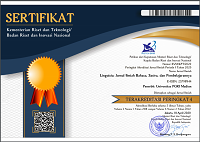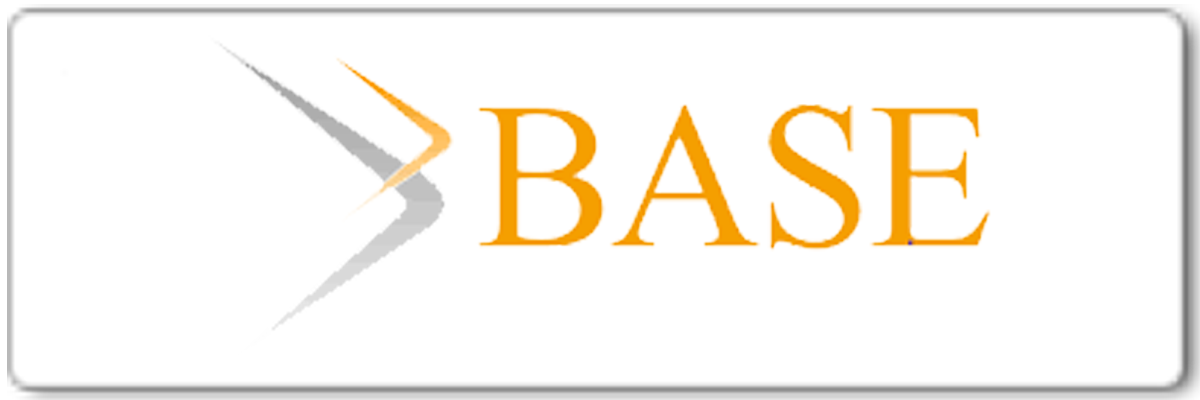Exploring the Teaching of English in an inclusive classroom: a Case Study
Abstract
This study has three aims. The first was to investigate the program that support the inclusive education at SMP Laboratorium UM. Secondly, the study was aimed at investigating how the teacher teaches English in inclusive classrooms, and the common challenges faced by the English teacher in teaching an inclusive classroom. The researchers used qualitative research using the case study method with two main instruments, namely interviews and observations. The participants involved in this research were an inclusive education school coordinator, an English teacher in inclusive classrooms, and students with special needs. The data were collected in two weeks via two interviews and two field observations. The data collected were in the form of tape recording, field notes, pictures, and videos. Those data were qualitatively analyzed to answer the research questions. The result of the study is categorized in three main points. First, the school offers program that support the implementation of inclusive education, such as self-development program, and extra courses that facilitate SEN students’ development of basic life skills. There are ten classes assigned to accommodate at least one special need student in each class. Second, when it comes to teaching English in inclusive classrooms, the teachers showed a lack of specific strategies, but they used game-based technology like Kahoot to make enjoyable learning. The teachers faced challenges, like handling tantrums and moody students. Third, the result also shows that patience and sincerity are important when teaching SEN students.
Keywords
Full Text:
PDFReferences
Allan, J. (2014). Inclusive education and the arts. Cambridge Journal of Education, 44(4), 511-523. https://www.tandfonline.com/doi/pdf/10.1080/0305764X.2014.921282
Amor, A. M., Hagiwara, M., Shogren, K. A., Thompson, J. R., Verdugo, M. Á., Burke, K. M., & Aguayo, V. (2019). International perspectives and trends in research on inclusive education: A systematic review. International Journal of Inclusive Education, 23(12), 1277-1295. https://www.tandfonline.com/doi/pdf/10.1080/13603116.2018.1445304
Andriana, E., & Evans, D. (2020). Listening to the voices of students on inclusive education: Responses from principals and teachers in Indonesia. International Journal of Educational Research, 103, 101644. https://www.sciencedirect.com/science/article/pii/S088303552031750X
Booth, T. (2009). Keeping the future alive: Maintaining inclusive values in education and society. Inclusive education across cultures: Crossing boundaries, sharing ideas, 121-134.
Chan, T., & Yuen, M. (2015). Inclusive Education in an International School: A Case Study from Hong Kong. International Journal of special education, 30(3), 86-97. https://eric.ed.gov/?id=EJ1094933
Creswell, J. W. (2002). Educational research: Planning, conducting, and evaluating quantitative (Vol. 7). Prentice Hall Upper Saddle River, NJ.
JDIH-Undang Undang Dasar 1945-Dewan Perwakilan Rakyat, Dewan Perwakilan Rakyat. https://www. dpr. go. id/jdih/uu1945 (2022).
Education, O. (2004). The Salamanca statement and framework for action on special needs education. Special Educational Needs and Inclusive Education: Systems and contexts, 1, 382. https://www.european-agency.org/sites/default/files/salamanca-statement-and-framework.pdf
Imaniah, I., & Fitria, N. (2018). Inclusive education for students with disability. SHS Web of Conferences,
Jaya, H., Haryoko, S., & Suhaeb, S. (2018). Life skills education for children with special needs in order to facilitate vocational skills. Journal of Physics: Conference Series,
Kusuma, D. F. (2021). Literature Study: The Development of Inclusive Education In South Korea, Thailand, and Indonesia. BUANA GENDER: Jurnal Studi Gender dan Anak, 6(2). http://ejournal.iainsurakarta.ac.id/index.php/buana-gender/article/download/4067/1415
Puspitasari, D. (2019). English Language Teaching in Inclusive Class: a Challenge. QALAMUNA: Jurnal Pendidikan, Sosial, dan Agama, 11(1), 37-46. https://ejournal.insuriponorogo.ac.id/index.php/qalamuna/article/download/50/52
Singal, N. (2019). Challenges and opportunities in efforts towards inclusive education: Reflections from India. International Journal of Inclusive Education, 23(7-8), 827-840. https://www.tandfonline.com/doi/abs/10.1080/13603116.2019.1624845
Strogilos, V., Lim, L., & Binte Mohamed Buhari, N. (2023). Differentiated instruction for students with SEN in mainstream classrooms: contextual features and types of curriculum modifications. Asia Pacific Journal of Education, 43(3), 850-866. https://www.tandfonline.com/doi/abs/10.1080/02188791.2021.1984873
Villafuerte, J., & Mosquera, Y. M. (2020). Teaching English language in Ecuador: A review from the inclusive educational approach. Journal of Arts and Humanities, 9(2), 75-90. https://www.theartsjournal.org/index.php/site/article/view/1854
Article Metrics
Abstract has been read : 36 timesPDF file viewed/downloaded: 0 times
DOI: http://doi.org/10.25273/linguista.v7i1.18994
Refbacks
- There are currently no refbacks.
Linguista: Jurnal Ilmiah Bahasa, Sastra, dan Pembelajarannya indexed by:
View My Stats








